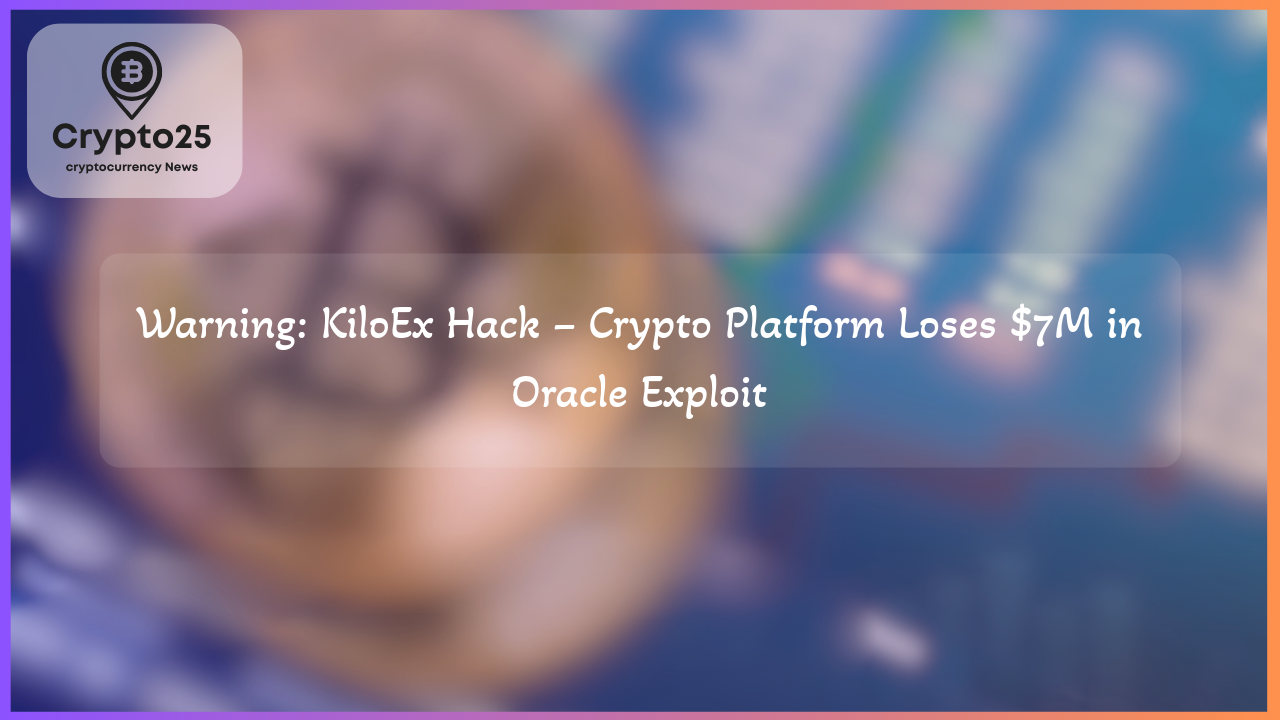
The decentralized finance (DeFi) world was shaken earlier this week when KiloEx, a decentralized exchange specializing in trading perpetual futures, fell victim to a complex hacking attack. This exploit resulted in devastating financial losses of approximately $7 million. The incident occurred across multiple blockchain networks, exposing a critical vulnerability in KiloEx’s price oracle system and raising questions about security measures within DeFi protocols.
### How the KiloEx Hack Exploited a Price Oracle Vulnerability
KiloEx’s attack has been traced to a weakness in its price oracle system, a vital component within decentralized exchanges. Price oracles enable blockchains to retrieve external data, such as real-time cryptocurrency prices, which are crucial for executing smart contracts based on accurate financial information. A failure in this system can, as shown in KiloEx’s case, result in significant losses.
According to reports from blockchain analysis firm Cyvers, the attacker leveraged Tornado Cash to hide their transaction history and executed coordinated exploits across the Base, BNB Chain, and Taiko blockchains. Through this intricate strategy, the attacker manipulated price oracle data. By using flash loans, they artificially altered the price of ETH — potentially reducing its value to fractions of its true worth — and took advantage of leveraged trading mechanisms to generate enormous fake profits. Within one of these transactions, the attacker reportedly walked away with $3.12 million in just minutes.
Price oracle manipulation has become a go-to strategy for illicit actors in the DeFi space. Manipulated prices, facilitated by flaws in access control systems, can cause drastic distortions in perceived value. As the price oracle registered significantly undervalued ETH prices, it allowed the attacker to exploit KiloEx before the platform could respond.
### Cross-Chain Exploits and Losses in the DeFi Space
KiloEx’s cross-chain functionality, designed to support transactions across multiple blockchain ecosystems, became another weak point in this attack. By moving across different networks, the hacker complicated efforts to intercept their operations and recover stolen assets. This exploit underscores the vulnerabilities associated with cross-chain platforms, which are increasingly common within decentralized finance. While cross-chain compatibility offers users greater flexibility, it also creates more avenues for bad actors to exploit network interoperability.
KiloEx’s team has since confirmed the breach, suspended trading services, and initiated emergency measures to recover lost funds. Partnerships with forensic blockchain firms and network partners are underway to trace the attackers’ wallets and blacklist them. Whether these efforts can fully retrieve the stolen assets remains unclear, especially given the sophisticated use of tools like Tornado Cash for anonymizing transactions.
Unfortunately, KiloEx is far from the first DeFi platform to fall victim to price oracle and cross-chain-based attacks. In 2022, Mango Markets lost over $100 million in an eerily similar exploit involving price manipulation, while just a year earlier, Cream Finance suffered $130 million in losses via flash loan attacks. These incidents reveal an industry-wide challenge in securing oracles and cross-chain setups.
| Title | Details |
|---|---|
| Market Cap | $1.2 Trillion |
| Loss Amount | $7 Million |
| Networks Exploited | Base, BNB Chain, Taiko |
| Recent DeFi Exploit Records | Mango Markets ($100M), Cream Finance ($130M) |
### Lessons Learned: Strengthening Oracle and Cross-Chain Security in DeFi
The KiloEx hack highlights critical security challenges in decentralized finance, with price oracle vulnerabilities taking center stage. Oracles serve as intermediaries between external data and blockchain systems, but their design flaws can give hackers the ability to manipulate markets, extract false gains, and destabilize protocols. Cross-chain operability, while revolutionary, exposes projects to overlapping risks when not rigorously tested and secured.
To protect against similar exploits, DeFi platforms must adopt better oracle designs, such as decentralized oracles and multi-sourced data feeds, to avoid single points of failure. Enhanced access control mechanisms, regular security audits, and advanced transaction monitoring tools can further reduce risk. Collaboration between blockchain ecosystems and forensic firms is also essential to trace illicit actors and prevent laundering.
As DeFi continues to grow and attract both legitimate investors and attackers alike, it is imperative for projects to prioritize security innovations. The KiloEx exploit serves as a stark warning that vulnerabilities in any component of the ecosystem can lead to monumental financial losses, shaking user trust at an industry-wide level.
By addressing these flaws, the blockchain community can aim for a more secure ecosystem and prevent history from repeating itself.
